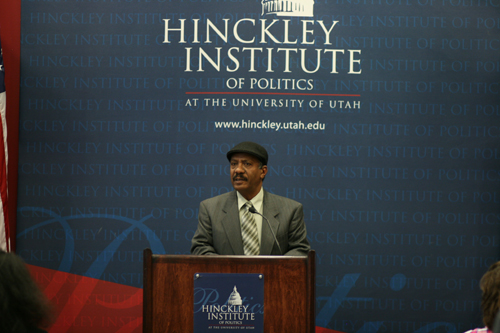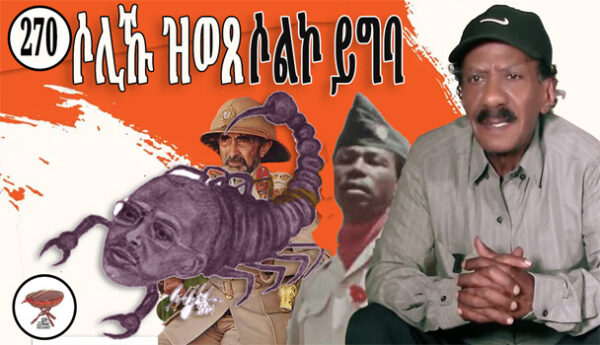The Ordeal Of Human Trafficking and Organ Harvesting

(This is a speech I delivered on Wednesday, Dec 12, 2013 at the Hinckley Institute of Politics, University of Utah.)
Thank you for coming. Thanks to Rebecca Heal who made this gathering possible and thanks to the Hinckley Institute of Politics, University of Utah, for giving me this opportunity.
Many years ago I was in a taxi in Thailand driving to the North, a place called Shangmay when the taxi run over a snake that was crossing the road. The driver stopped, went out of the car, picked a stick and walked to where the snake was. He kept hitting the dead snake until its head flattened on the asphalt road. Then he went to the side, dug a hole and buried the snake. It seems you have to make sure the snake doesn’t survive all of that and haunts you—the driver explained: snakes know who tried to kill them!
I know such superstition, I grew around it, and I just smiled. Looking back at that lesson, I believe that authoritarians, dictators and tyrants are similar to the snake. They have to be buried if people are to live in peace and freedom.
I am very excited to speak to you, the politicians of the future; the current politicians have been letting us down for as far as I can remember.
To me those who study and pursue a career in politics (particularly with a super power) play a great role in the safety and well-being of the world. The rest of the disciplines, economics, financing, engineering and others follow politics. In a politically impoverished country, the social well-being of the society is endangered. Good politics maintains a good society and thus gets humanity closer to its goal of pursuing happiness. Unless one’s happiness in not based on seeing others suffer.
Over the years, politics and politicians lost the glamor, the job has become similar to gambling. And in turn, gambling has become a “game”, just an innocent game, not a social vice anymore. In the past, a gambler was considered an outcast, an untrusted individual in society; today gamblers are featured in TV shows and are treated as stars!
The opposite happened to politicians.
In the time of Benjamin Franklin, the position of an ambassador carried heavy responsibilities. It was an important and prestigious position—not everyone could be an ambassador; you will not find the equals of John Adams, Benjamin Franklin, and Joseph Kennedy in today’s ambassadors. Today, I don’t think Kennedy would accept the position of an ambassador; if he did, he would probably resign in frustration. Ambassadors do not have as frequent audience as in the past with the British PM, for example, (a position that has become a dull shadow of its glorious past). This has happened because of the advancement in the fields of transportation, communication and information technology. Obama calls world leaders and talks to them directly. He can eat breakfast on a plane on his way to London, meet the British PM for a couple of hours and probably return home on the same day, thus, diminishing the role of ambassadors. But that is not my concern of today. I am concerned with what has happened with foreign policy which has deteriorated as well. That is why the tragedy of human trafficking and cruel organ harvesting is going on unpunished.
In the past, elected, or officials appointed by elected representatives, used to run the foreign policy of governments—and I am talking about the Western World, the rest are inconsequential in this context. To cope with modern development, Western government have followed their corporations in outsourcing their tasks, today, foreign policy is sub-contracted, outsourced—the only consolation is they are not outsourcing it to China, like in the manufacturing of sweat-shirts, gadgets and toys. The tasks are outsourced to shady entities with unelected officials; the execution of foreign policy by free-lancers: the political NGO industry. Yes, it has become an industry with 9-5 career jobs. Western governments are treating the Third World as a franchise given to different political NGOs who have become more visible and better funded compared to the charitable, humanitarian organizations that survive mostly due to the dedication of blessed people whose aim is to help the poor and the destitute. Not many of those who operate under the guise of conflict resolution, democratization and many other good sounding terms, have lifted a finger to pressure the UN or their governments to do something about the human trafficking gangs operating in the Sinai Desert, for example.
Except for USAid, Amnesty International, Human Rights Watch and few other small outfits with noble ideals, civic duty minded people who really work hard to better the world, the rest have been big disappointment. I have been waging this one-man fight (that goes nowhere) for a while now. And many people tell me, “Saleh, you cannot fight well-entrenched, well-funded influential NGO’s, you cannot win!” I do not fight to win (that is the yardstick of corporates) I fight to satisfy my conscience. I do what I have to do; winning and losing is not my concern. But if enough people fight for a right cause, they certainly win—meaning, their cause wins.
“Six degrees of separation is the theory that everyone and everything is six or fewer steps away, by way of introduction, from any other person in the world, so that a chain of “a friend of a friend” statements can be made to connect any two people in a maximum of six steps. ” This is from wikipedia.
That assumed there were 1.5 billion inhabitants in the world—it could be revised. But the entire social network mediums, like google, facebook, linkedin, twitter and others, build their platforms based on such theories…it is a topic for mathematicians, social behavior scientists, algorithm and all.
What about countries that are not very mobile? Societies like my country that is roughly 3 million people–give or take a million because there is no published census since the 1950s–I would say the degree of separation is much less than 6.
I learned the population of Utah is just around 3 million. Now imagine, God forbid, 366 inhabitants of Utah drowning in the Great Salt Lake in one day! That is what happened to my compatriots from Eritrea ten weeks ago in October 3; in that day, 366 Eritrean victims of human trafficking drowned near Lampedusa, Italy. To Eritreans that was not a mere story, the degree of separation is so low that I know many victims who are friends of people I know, or their relatives and neighbors. I know the father of one of the victims when I was a child.
To us, human trafficking is not a topic for intellectual curiosity, it is a real tragedy that leaves us in continuous state of mourning and sadness.
In the last six years alone, it is estimated that about 8000 Eritreans lost their lives in the Sinai Desert. Over a thousand drowned in the Mediterranean Sea and thousands more died in the Sahara Desert crossing to Libya from where they would continue to Europe or head East towards Sinai to cross to Israel. There are around 40,000 Eritreans who entered Israel, almost all reached there through the Sinai Bedouin traffickers. A recent report estimates the traffickers made around 600 million dollars on that route alone. In Sinai, dozens of gangs are engaged in the crime of human trafficking; harvested human organs are the major cash crop in Sinai. Thousands of victims went through the blackmailing and ransom rackets. Many were raped, tortured, killed, their human organs harvested and their bodies was thrown in the desert where animals fed on them
The racket is everywhere. Ransom which could reach as high as $50,000 per person is paid, collected rather, in Israel, the USA, Europe…everywhere, including inside Eritrea where there is a network of collaborators with the trafficking gangs. Eritrean communities abroad are going through a lot, selling their properties, depleting their life-long savings, borrowing, collecting donations in churches and social gathering to pay for the ransom to free a relative. If they don’t pay, the traffickers harvest the human organs of the victims. The organs, mainly kidneys, are sold in many places, including in New Jersey for as much as $400,000. In 2011, some people pleaded guilty in Trenton, New Jersey; they were accused of organ trafficking to the US.
The international audience was exposed to the human organ trafficking on August 17, 2009 when the Swedish Journalist Donald Bostrom, reported on the Swedish ‘Aftonbladet’ a story under the title “Our sons plundered for their organ”. It was around the same time that many people became alerted of the situation. Since then, the news has gotten more gruesome by the day.
.
For Eritrea, there is a lost generation. Those being victimized by the Eritrean regime and then by the human traffickers are mainly young men; losing them would have negative consequences in the future of the country, the long term effects are great. The “…age and gender imbalances would certainly have disastrous implications in the future particularly in terms of reproduction.“
.
Eritreans and other concerned people cried, appealed to the world to take action. Deaf ears! The lives of young Eritreans, it seems, are not as valuable as a barrel of oil. But there are a few exceptions, a few months ago, Ira Glass of NPR talked about the issue of human trafficking in “This American Life.” But that is hardly enough to affect action, we need more Ira Glasses.
There! My indignation with the NGO’s.
When the human trafficking events started to unfold in its present magnitude, one would expect the world to take action. Those who should pressure for action were sitting in the office, or traveling the world with the pretext of compiling a report–very mechanical. Would it be wrong to hire a mercenary force to blow up the Bedouin camps in Sinai? Of course not. Governments have been blowing up places for trivial reasons, less significant than that.
Here, you could ask me, in fact challenge me: why don’t Eritreans do it themselves? Why do Eritreans pay ransom; if they didn’t pay, the kidnapping would stop!
First, what would anyone of you do if his sister, brother and child fell in a hostage situation and risked a gruesome death at the hands of human traffickers. That is a moral question, not a legal one.
Second, a victim cannot be blamed for being a victim. My people have been victims for over twenty years under the current Eritrean regime. Like all underdeveloped nations, Eritreans depend on their children to make a living. Villagers depend on the entire family to farm their lands and to harvest enough to survive. In our case, the government decided that it owns the youth the moment they reach eleventh grade, at puberty! Thereafter, they are hauled to military camps for the final year of high school. Then follows the compulsory national service time that extends indefinitely.
I have a relative who has been serving (sometimes carrying a gun and running from one battle to another, sometimes building roads, sometimes tending to a general’s farm or building a house for him) for the last 16 years–with no pay. He was forcefully conscripted in 1997 when he was 18–now he is 34, not married, never had a chance to have a home, to pursue his education or to help his parents.
Eritrean youth are spread all over the country in slave labor locations, and their labor is extracted for free; Nevsun, a Canadian mining company, profits from such slave labor. Supposedly, the enlisted are paid 400 Nakfa a month (that, in case you are wondering, is equal to $8 a month, if paid at all.) In addition to that, the regime in Eritrea is trigger happy, endless wars with all our neighbors–Sudan, Ethiopia, Djibouti and Yemen–now it is provoking the USA. I am serious.
The Eritrean regime was at war with Ethiopia over a border town; the war ended in 2000. We lost 18, 000 lives. Since then, “20 years after gaining independent statehood, [Eritrea] has emerged as one of the largest refugee producing countries on the African continent as well as one of the most militarized societies in the world.“ And since then, it is estimated that 5000 people escape the country on a monthly basis despite the shoot to kill order on the borders through which the frustrated youth escape. To date there are about 80,000 refugees in Ethiopia, around 125,000 new refugees in Sudan (on top of around 500,000 refugees who are in Sudanese camps and towns where they began to arrive since 1967, the UNHCR closed the chapter on them). Trying to escape this reality creates an opportunity for the human trafficking rackets. UN Monitoring Group for Somalia and Eritrea has implicated senior officials of the Eritrean regime for involvement in the racket of human trafficking and smuggling.
.
As I tried to explain in my recent book, “MIRIAM WAS HERE,” human trafficking is a result of the oppression and enslavement of Eritreans by a totalitarian regime. It is the repercussions of tyranny and lack of respect for human rights, democracy and basic justice. In short, it is the denying of basic freedom that a citizen should enjoy.
.
Human trafficking is a world-wide phenomena, there are hundreds of papers, books, movies and documentaries that address it. I am focusing on Eritrea for two reasons: First, simply because I am Eritrea, it is natural that it touches me more than the rest; I feel duty bound to do what I can. The second reason is more important. The percentage of Eritrean victims of human trafficking is, by far, the largest compared to the other countries of our region. For example, the ratio of Eritrean refugees to Lampedusa, Italy, the major gateway to Europe, is 2-1 compared to Syrians. Taking into account the population of Syria which is eight times bigger than that of Eritrea, it means, for every Syrian refugees, there are 9 Eritreans. And the world knows the carnage raging in Syria, it is awful. Yet despite that, Eritreans are outdoing Syrians by 9-1 in escaping their country. Now you have an idea how bad it is in Eritrea, particularly for the youth, (your age); the ratio reflects the level of dissatisfaction that Eritrean youth have reached.
I do not know what would stop human traffickers; I know what would stop the supply of Eritrean victims to the criminals. The tyranny in Eritrean should be weeded out–from the roots; I have taken a lesson on that from the Thai taxi driver.
Now. What has the West done to elongate the suffering of Eritreans, to the extent that they become commodities for human trafficking?
Well, there is this policy, mainly followed by Europe; it is called the positive engagement policy. Europeans believe that if they treat tyrants nicely, they could miraculously become nicer to their people. Wrong. On the contrary, they have been giving the tyrants legitimacy, funds and a cover to continue to do what they do best: increase their oppression of citizens.
.
The West always cajoles and flirts with tyrants who wreak havoc in the lives of helpless people. I believe that a democracy, a nation of free people like the USA, should have nothing to do with tyrannies; any relation should be severed. If they cannot help the people attain their freedom, then they should stop interfering and leave issues to their own devices. If it is a confrontation between the people and the authoritarian regimes, I am confident no tyrant would survive. Policies that undermine freedom of citizens for a barrel of oil, or for a trivial national interest, should be shunned. Only then we can solve the problems associated, not only with human trafficking, but with freedom and liberty.
Thank you
negarit@awate.com




Awate Forum